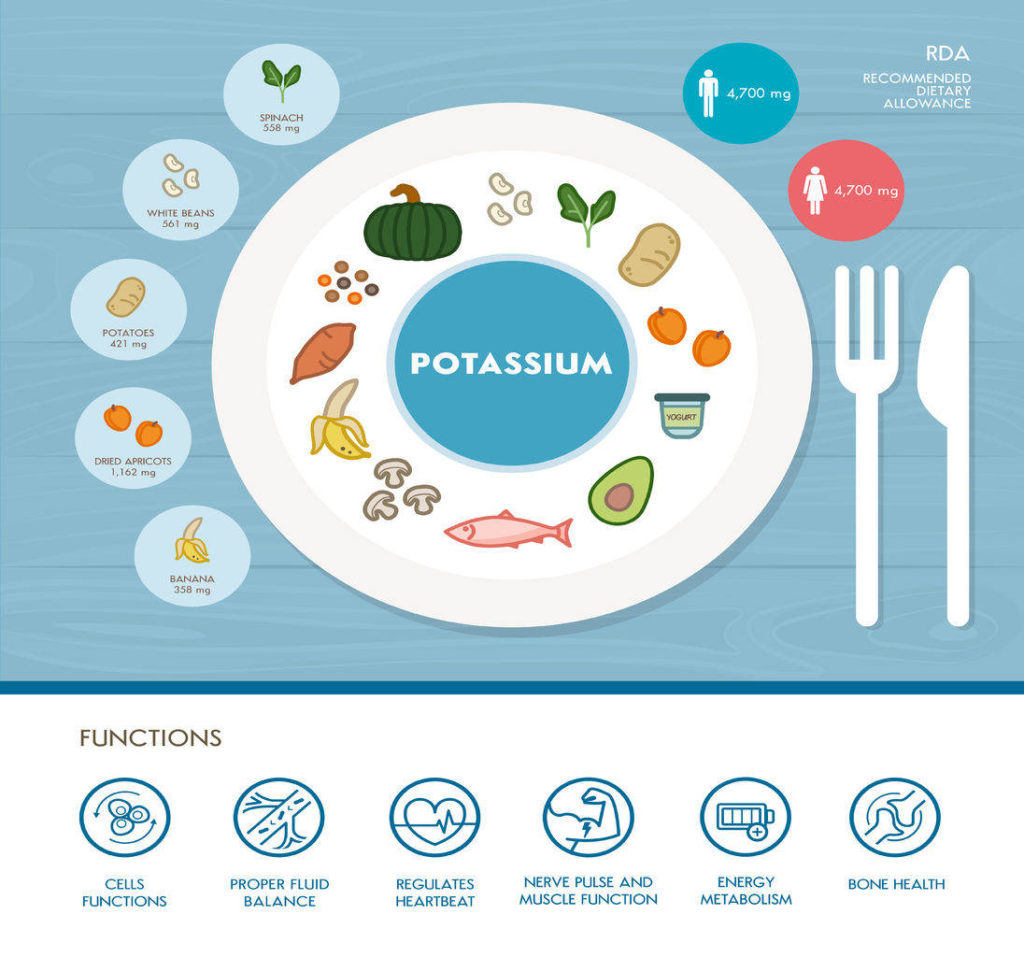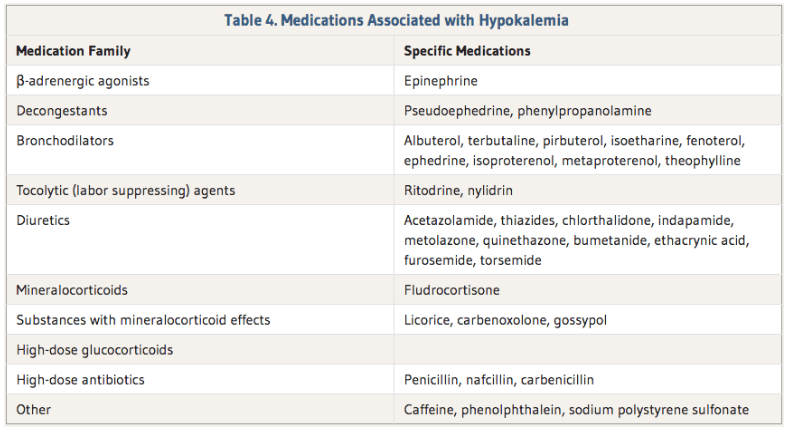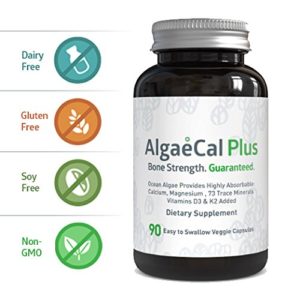What is Potassium? | Causes of Potassium Deficiency | Common Signs of Deficiency | Bone Health | Potassium and Calcium | FAQs
We think it’s important that you know about potassium.
It’s essential to have the right level of potassium in your blood to maintain good health.
And it’s even more important to be aware of your potassium levels if you are taking diuretics. Why? Read on!
What is Potassium and Why Do You Need It?
Potassium is a mineral essential to the normal functioning of our cells, tissues and organs. It plays a vital role in maintaining healthy blood pressure, nerve impulses, heart health, and smooth muscular function (1). It also plays an important role in digestion and carbohydrate metabolism(2).
Potassium is an essential mineral that our bodies cannot naturally produce(3). This means we need to keep check of our potassium levels and ensure that we have the right balance of potassium in our bodies; not too much and not too little.
Having too much potassium in the blood is called hyperkalemia, whilst having too little is known as hypokalemia.
And did you know that potassium is an electrolyte? This means that potassium is also important for keeping you hydrated and maintaining your body’s ionic balance.
Pretty important, right?
The RDI for an average adult is 4.7 grams of potassium per day.
You may find these potassium-rich foods in your kitchen: lean meats, dark leafy greens, avocados, salmon, legumes, apricots, pineapples and bananas!

Sources of Potassium and its functions. Image source: Elenabsl.
Causes of Potassium Deficiency
You may be wondering: am I eating enough potassium-rich foods?
Well, here is the fascinating part: our diets are usually not to blame! It is rare for hypokalemia to be caused by inadequate consumption of potassium-rich foods.
According to the Linus Pauling Institute, the main causes of hypokalemia are the use of potassium-wasting diuretics, some forms of kidney disease, or metabolic disturbances. You also run the risk of low potassium levels following an episode of vomiting or diarrhea, which dehydrates you quite a bit.
Here is a list of conditions that increase the risk of hypokalemia (4):
- Use of potassium-wasting diuretics (water pills often used to treat high blood pressure and heart failure)
- Alcoholism
- Severe vomiting or diarrhea
- Overuse or abuse of laxatives
- Anorexia nervosa or bulimia
- Magnesium depletion
- Chronic kidney disease
- Congestive heart failure
Types of Medications Associated with Hypokalemia:

Medication associated with Hypokalemia. Source: Linus Pauling Institute.
If you are concerned about potassium deficiency and take any of the above medications, it would be wise to speak to your doctor.
You can find out whether you have potassium deficiency by getting a blood test done.
Common Signs of Potassium Deficiency
It is not always easy to spot potassium deficiency, and it really does depend on just how deficient you are.
According to the US National Library of Medicine, small and temporary drops in potassium levels usually go unnoticed, and show very mild symptoms:
- Fatigue
- Weakness or lack of energy
- Muscle cramps or spasms
- Stomach disturbances: pain, bloating or constipation
If you are experiencing irregular heartbeat, palpitations or have a history of heart problems, then it’s important to speak to your doctor or physician immediately. This could be a potential symptom of severe potassium deficiency.
Potassium Deficiency and Bone Health
One study published in the New England Journal of Medicine has shown positive associations between potassium and bone mineral density. Their findings suggest that potassium is important for women who are approaching, or have gone through, menopause and concerned about bone demineralization. The researchers concluded that potassium bicarbonate helped reduce bone resorption and increase the rate of bone formation.
In 2009 Osteoporosis International published a study which examined the effect of high potassium consumption within 266 elderly postmenopausal women aged 70-80 years. They found positive association between bone mineral density and dietary potassium intake.
Eating foods rich in potassium may play a part in the prevention of bone demineralization.
Potassium and Calcium
Experiencing bone loss means your bones are losing a whole range of minerals – not just calcium! That’s why we always emphasize the benefits of consuming a broad range of nutrients so that they can work together to keep you healthy.
A study published by The Journal of Clinical Endocrinology and Metabolism found that potassium and calcium are able to work together synergistically to inhibit bone resorption in postmenopausal women.
So make sure you have enough potassium and calcium to maximize the benefits for your bones! The best source of these nutrients are natural whole foods, organic and grown without harmful pesticides.
AlgaeCal Plus comes from organic algae! It’s the only source of USDA certified organic plant-based calcium on the market, and our customers love it.
So, now that you have potassium covered, ask yourself this:
Are you also getting a high quality and natural source of calcium?
FAQS
How much potassium is there in a banana?
For a medium sized banana, there is approximately 422 mg of potassium.
What is the normal potassium level in blood?
The potassium level in your blood should sit anywhere between 3.6 and 5.2 millimoles per liter (mmol/L) of blood. A potassium level higher than 5.5 mmol/L can become dangerous to your health (5).
Sources:
- University of Maryland Medical Center (2015) Potassium. Available at: http://umm.edu/health/medical/altmed/supplement/potassium (Accessed: 05 July 2016).
- Harvard Health Publications (2014) Heart Failure and Potassium. Available at: http://www.health.harvard.edu/heart-health/heart-failure-and-potassium (Accessed: 5 July 2016).
- Cherney, K. (2005) Potassium. Available at: http://www.healthline.com/health/potassium (Accessed: 5 July 2016).
- Gennari FJ. Hypokalemia. N Engl J Med. 1998;339(7):451-458.
- Healthline (2015) High Potassium. Available at: http://www.healthline.com/health/high-potassium-hyperkalemia (Accessed: 07 July 2016).






patricia
July 16, 2016 , 5:20 amhow easy is it to overdoes on potassium? If I take AlgaeCal and eat a banana daily plus spinach potatoes beans and apricots…
could someone have too much potassium by mistake?